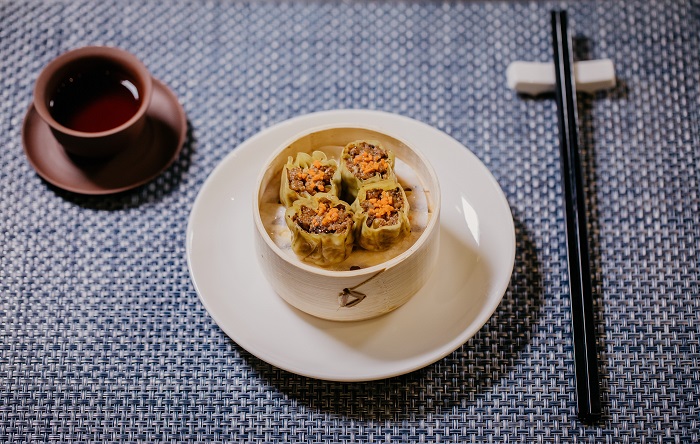photo credit: Shiok
By Lynda Kiernan, Global AgInvesting Media
Sustainable aquaculture and related tech investor Aqua-Spark has made its first investment in cell cultured seafood, leading $12.6 million in Series A funding for Singapore-based cultured shrimp startup Shiok Meats.
Joining Aqua-Spark in this round was an extensive list of investors including Enterprise Singapore’s SEEDS Capital, Japan-based Real Tech Fund, Korean family office, Irongrey, Singapore-based Ilshin Holdings, South Korea-based Yollowdog Empowers Fund, U.S.-based Veg Invest Trust, U.S.-based Aiim Partners, Singapore-based Makana Ventures, U.S.-based Beyond Impact, U.S.-based Nicole Brodeur and Alex Payne, and Singapore-based Kelvin Chang Siang Lin.
“The cell-based animal protein industry has been on our radar for some time as once it is at scale it will have an enormous influence on food production efficiency, food safety, and the environment,” said Mike Velings and Amy Novogratz co-founder of Aqua-Spark.
“As our first investment in cell-based seafood, Shiok Meats immediately stood out to us with their strong, female-led team and impressive milestones to-date. While we’ve invested in a number of technologies working to make shrimp farming more efficient, healthier, and less polluting, Shiok is the first company in our portfolio to focus on shrimp production.”
This funding, which comes three months after the company raised $3 million in bridge funding, brings total capital raised by Shiok since 2018 to $20.8 million. The capital will be used to construct a pioneering facility for the commercial production of cell-based minced shrimp for dumplings and other products beginning in 2022.
Eventually the company has plans to also add cultured shrimp paste and powder, fully-formed, entire shrimp, and lobster and crab products to its lineup.
Co-founded in 2018 by scientists Dr. Sandhya Sriram (CEO) and Dr. Ka Yi Ling (CSO), Shiok (which is a slang term for “fantastic” and “delicious”) leverages its founders’ experience in the field of biology and cell technology to create cultured crustacean meats four times faster than conventional production by growing them from stem cells in a serum-free medium.
Aside from reducing the pressure on the global seafood harvest, Shiok sees cellular aquaculture as a means to also counter the overuse of antibiotics in animal protein production – an issue highlighted in a recent Canadian study that found that 17 percent of shrimp imports entering the country, mainly from Asia, were resistant to one or more types of antibiotics.
Noted as one of the most pressing threats to global health by the World Health Organization, antibiotic resistance is responsible for the deaths of 700,000 people each year. And if left unchecked, a study conducted in the UK and released in 2014 concluded that by 2050, antibiotic resistance could cause more deaths than cancer.
However, when carried out in a sterile environment, cellular aquaculture can produce seafood without animals and without the use of antibiotics.
Velings and Novogratz also noted that the investment in this “clean meat” technology is attractive due to its potential to reduce the greenhouse gas emissions, energy and water consumption, and land use of the global shrimp sector, which is currently valued at approximately $50 billion.
Furthermore, Asia – a region that consumes 65 million tons of seafood per year, and which provides the bulk of the world’s shellfish and seafood – is rife with challenges, including up to 30 percent of food sold and labeled as shrimp being tested and proving to be something else, and for every 100 pounds of shrimp imported to the U.S., one-fifth proves to be bycatch, or other animals caught in the process of catching shrimp.
“We are extremely excited to work in partnership with Aqua-Spark as we develop cell-based seafood and meats that are contributing towards a cleaner and healthier seafood industry and solving for the inefficiencies around global protein production,” said Sriram.
“Aqua-Spark was the perfect partner to lead our Series A because they care deeply about funding companies that address planetary health and food security. With their help, we hope to become the global leader in cell-based crustaceans and seafood.”
Currently, Shiok’s cost of production remains prohibitive at $5,000 for a kilogram of shrimp. However, the startup is working to reduce their costs enough to lower costs to $50 per kilogram by 2021 to bring their first products to the Asia Pacific market – one of its two target markets along with the U.S.
For Aqua-Spark, this investment not only marks its first foray into cellular meat production, but is also its 20th investment in companies or technologies working to make the aquaculture and seafood industries more sustainable and ecologically friendly.
“We are excited to help shape this novel and innovative industry,” said Velings and Novogratz, “…which we expect to have a huge impact on the future of seafood, while continuing to support sustainable aquaculture operations, inputs, and innovations across the value chain.”
– Lynda Kiernan is editor with GAI Media, and is managing editor and daily contributor for Global AgInvesting’s AgInvesting Weekly News and Agtech Intel News, and HighQuest Group’s Oilseed & Grain News. She is also a contributor to the GAI Gazette. She can be reached at lkiernan@globalaginvesting.com

